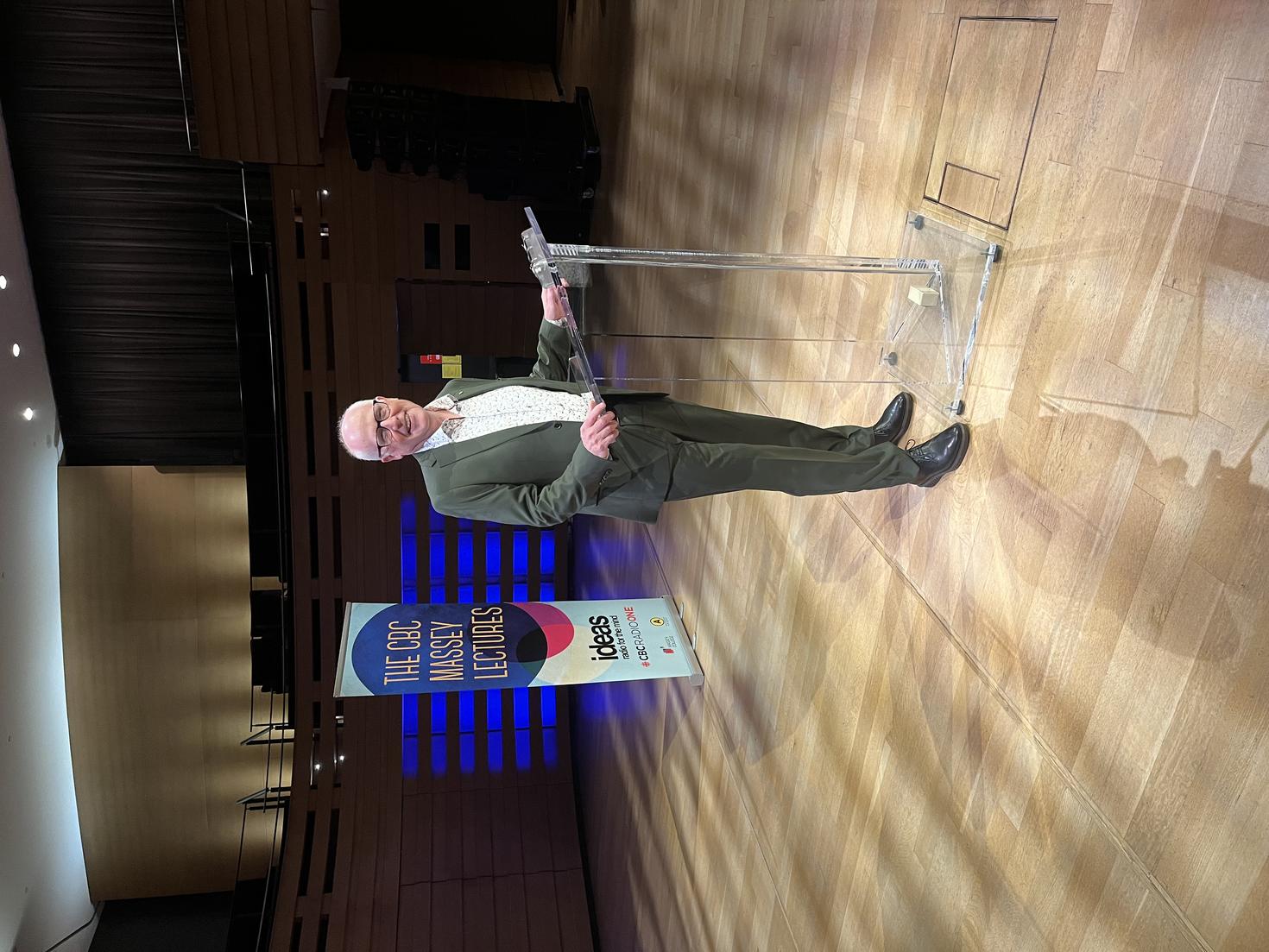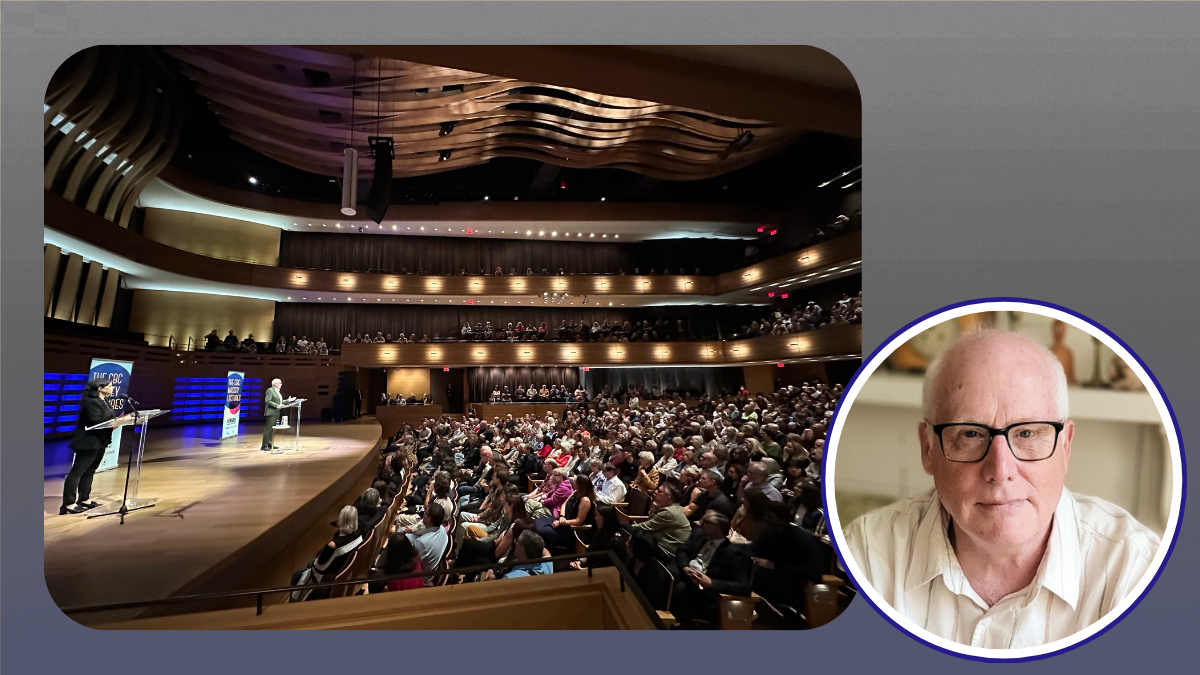For Neve, an adjunct professor of international human rights law, universality is “all-encompassing.” It is a concept that binds us to one another. It creates a whole from many disparate parts. In his Massey lecture, Universal: Renewing Human Rights in a Fractured World, he admits that we are facing unprecedented turmoil.
“This is not universality’s finest hour,” he says.
“But it can be.”
“We have a shared, common humanity, and we have deep yearnings for fairness and freedom,” he points out. “Universal human rights ...reflect values and principles that have been our guiding stars for millennia, including our belief that life is sacred. I am confident that we can renew the promise [of the Universal Declaration of Human Rights (UDHR)].”
The Power of the Collective
Neve’s conviction is shaped by decades of human rights work across continents and communities — from refugee camps in Bangladesh to reconciliation efforts here in Canada.
His message to those who feel powerless in the face of global crises is hopeful and empowering. “It can be overwhelming and easy to feel that anything we do individually feels pointless and will not, cannot, make a difference, he acknowledges. “But everything matters. Power lies in the collective. What we do individually joins up with the efforts of a handful of others who live nearby, dozens in the neighbourhood, hundreds in the city, hundreds of thousands across the country and millions around the world.”
It is this belief — that universality is built one small act at a time — that gives his work its emotional centre. Neve insists on the significance of the local, the personal, the human.

Universality as a Promise
In his September 18 op-ed in the Globe and Mail, The Universal Declaration of Human Rights should not be written off as a failure, Neve notes that the UDHR, adopted in 1948, has inspired more progress than many realize. “There has been enormous human rights progress since 1948 — far greater than at any time in history. And much of that change has been spurred and inspired by the Declaration itself.”
Where the world has faltered, he says, is in embracing the universality of that promise — the idea that rights belong to everyone, without exception. “We have not even truly acknowledged that human rights are a universal promise, let alone ensured they are universally protected and enjoyed,” he warns. “Instead, we have allowed human rights to become a club. Membership is steeped in white, patriarchal, moneyed privilege.”
Neve continues to find inspiration and lessons from the people who refuse to give up. “We cannot lose sight of the teachings, experience and wisdom of the communities at the frontlines of human rights struggle and the individuals working to defend human rights in the face of conflict, inequality and repression.”
In addition to teaching international human rights law here at uOttawa as well as Dalhousie University, Neve is also a Senior Fellow with uOttawa’s Graduate School of Public and International Affairs. He served as Secretary General of Amnesty International Canada from 2000 - 2020, during which time he took part in over forty human rights research and advocacy delegations throughout Africa, Asia, Latin America, Guantánamo Bay and, closer to home, First Nations communities in Canada. He has worked as a refugee lawyer in private practice and in a community legal aid clinic and has served as a member of the Immigration and Refugee Board. In 2007 Neve was named an Officer of the Order of Canada and in 2012 received the Queen Elizabeth II Diamond Jubilee Medal.
In his role at the University of Ottawa, Neve brings hope and humility into the classroom. For him, human rights law is not just about statutes or treaties; it is about people. “It has always been foundational to remember that everything about international human rights law is, above all else, about humans,” he says. “My approach to teaching and mentoring is to bring those voices directly into the classroom.”
At its heart, Neve’s work reminds us that progress begins when we act in solidarity. “It is people who fuel my faith in universal human rights: people at the grassroots of struggle who never give up and people everywhere who reach out in solidarity to join in and support those struggles,” he says.
“Together, our power is formidable and, I believe, ultimately invincible.”
